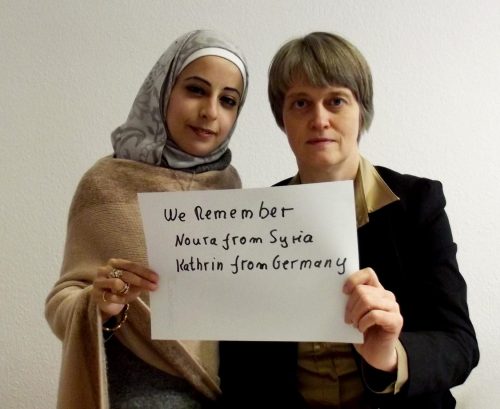Am 27. Januar 1945 befreite die Rote Armee das Vernichtungslager in Auschwitz. Es war das größte von Nazi-Deutschland errichtete Vernichtungslager. Mehr als 1.100.000 Menschen wurden allein in Auschwitz ermordet, die allermeisten waren Juden aus Mittel-, Süd- und Osteuropa. Die Nazis haben auch Kommunisten, Sozialdemokraten, andere politische Opositionelle, kranke Menschen oder solche mit Behinderungen, Sinti, Roma, Zeugen Jehovas, oppositionelle Priester /Pastoren und homosexuelle Männer und Frauen ermordet. Seit 1996 ist der 27. Januar ein Gedenktag in Deutschland. Die Vereinten Nationen erklärten den 27. Januar im Jahr 2005 zum Internationalen Tag des Gedenkens an die Opfer des Holocausts.
I quote from Wikipedia, https://en.wikipedia.org/wiki/Auschwitz_concentration_camp:
„Auschwitz I was first constructed to hold Polish political prisoners, who began to arrive in May 1940. The first extermination of prisoners took place in September 1941, and Auschwitz II–Birkenau went on to become a major site of the Nazi Final Solution to the Jewish Question. From early 1942 until late 1944, transport trains delivered Jews to the camp’s gas chambers from all over German-occupied Europe, where they were killed with the pesticide Zyklon B. An estimated 1.3 million people were sent to the camp, of whom at least 1.1 million died. Around 90 percent of those killed were Jewish; approximately 1 in 6 Jews killed in the Holocaust died at the camp.[1][2] Others deported to Auschwitz included 150,000 Poles, 23,000 Romani and Sinti, 15,000 Soviet prisoners of war, 400 Jehovah’s Witnesses, and tens of thousands of others of diverse nationalities, including an unknown number of homosexuals.[3] Many of those not killed in the gas chambers died of starvation, forced labor, infectious diseases, individual executions, and medical experiments.“

Jobcoaching, Business Coaching, Diversity Coaching
